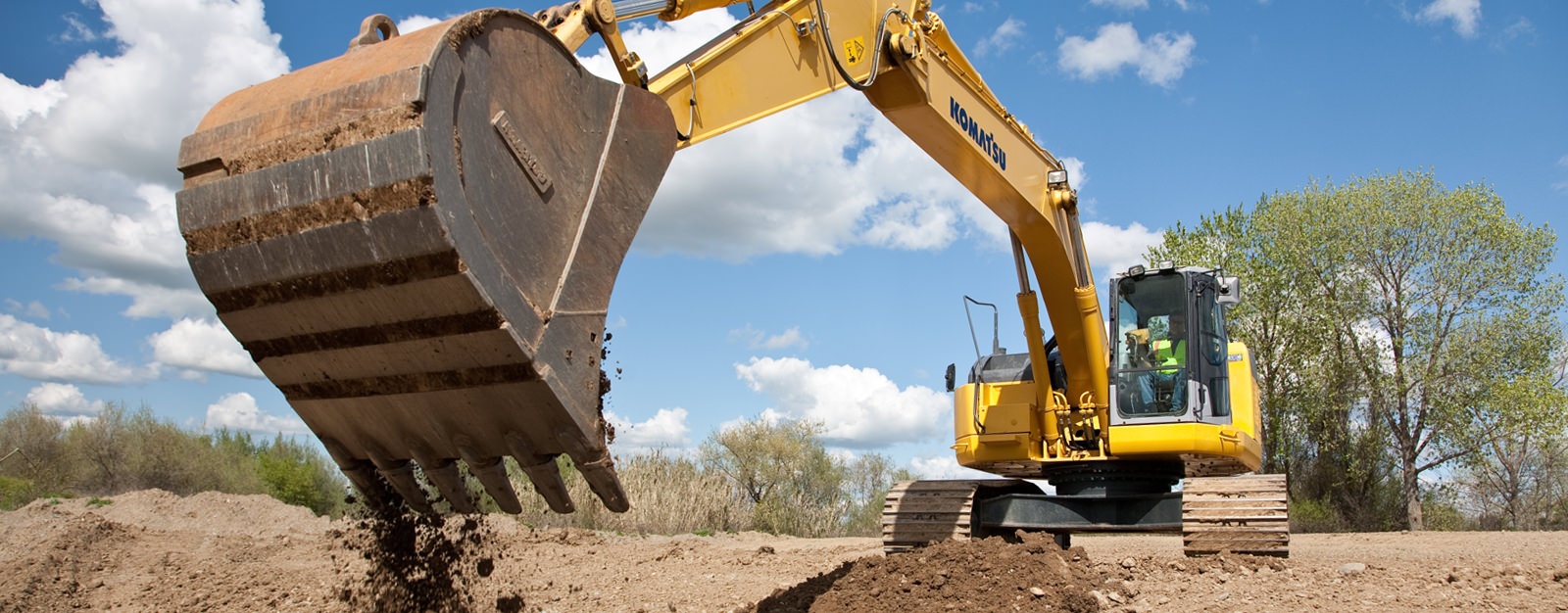Excavating Ohio - Leading Excavation Specialists for Ohio Projects
Wiki Article
Comprehensive Excavation Methods: Understanding the Principles for Success
In the world of building and construction and civil engineering, the importance of efficient excavation methods can not be overstated. The careful preparation, exact implementation, and meticulous focus to information needed in excavation tasks require an extensive strategy that incorporates various basic elements. From initial dirt evaluation to the execution of precaution and normal progression surveillance, grasping these core aspects is necessary for attaining success in any kind of excavation undertaking. However, real proficiency exists not simply in recognizing these fundamentals but in seamlessly integrating them to navigate the intricacies of excavation jobs with skill.Understanding Excavation Task Planning

The preliminary phase of any type of excavation job is the planning stage, where important decisions are made that can significantly influence the result of the project. Understanding the task extent, timeline, and budget constraints is important for producing an extensive excavation plan that ensures the job's success.
One trick element of excavation project planning is the growth of a thorough timeline that lays out the sequence of activities, landmarks, and due dates. This timeline functions as a roadmap for the project team, allowing them to track development and make essential adjustments to guarantee the job remains on timetable. Additionally, a distinct spending plan that makes up all expenses, consisting of devices service, labor costs, and materials, is essential for staying clear of cost overruns and hold-ups. By very carefully taking into consideration all these aspects during the drawing board, excavation projects can be implemented efficiently and effectively, leading to successful outcomes.
Soil Analysis and Website Assessment
Performing extensive dirt evaluation and website evaluation is an important action in the prep work stage of any kind of excavation job. Dirt analysis includes identifying the composition, framework, and homes of the dirt at the excavation website. This information is vital for recognizing the soil's bearing ability, dampness web content, and capacity for erosion, which are vital consider establishing the excavation methods and tools required for the job.Website examination goes past soil evaluation and encompasses a broader analysis of the total site problems. This assessment includes identifying any type of possible dangers, such as below ground energies, ecological problems, or unpredictable terrain, that can influence the excavation process. By completely examining the website, task supervisors can create efficient excavation approaches that focus on safety, effectiveness, and environmental management.
Using sophisticated modern technologies like ground-penetrating radar, dirt sampling, and drone surveys can enhance the precision and efficiency of soil analysis and site assessment. Investing time and resources in these initial steps can inevitably conserve time and prevent pricey hold-ups or problems during the excavation procedure.
Tools Choice and Utilization
Efficient excavation projects depend greatly on critical tools option and usage to ensure optimal efficiency and performance. Choosing the appropriate equipment for the work is vital in maximizing performance and minimizing downtime. Variables such as the kind of dirt, depth of excavation, and job scope play a substantial duty in determining the most suitable equipment for the job handy.
Along with choosing the suitable equipment, appropriate utilization is crucial to task success. Operators needs to be trained to manage the tools safely and successfully - lancaster trenching. Normal upkeep checks and prompt repairs help prevent failures and ensure constant performance throughout the task
Precaution and Regulations Conformity
In the realm of excavation projects, prioritizing precaution and conformity with laws is extremely important to guaranteeing a protected and legally audio functional setting. Security procedures incorporate an array of practices, consisting of conducting thorough site assessments, implementing correct signage and barriers, and supplying adequate safety training for all personnel associated with the excavation process. Adherence to laws, such as OSHA requirements in the United States, makes sure that the excavation job satisfies the required standards to protect employees, onlookers, and the surrounding environment.
Tracking Development and Adjusting Strategies
Exactly how can project supervisors properly track the innovation of excavation tasks and adjust their techniques accordingly to maximize end results? Surveillance development is essential for ensuring that excavation jobs stay on track and meet deadlines.
Final Thought
In conclusion, understanding the basics of thorough excavation methods is important for the success of any kind of project. By recognizing job preparation, evaluating dirt and site problems, selecting suitable equipment, conforming with safety and security guidelines, and checking progression, task supervisors can make sure a effective and smooth excavation process. Implementing these strategies will lead to successful end results and minimize potential threats or troubles during the excavation project.
The first phase of any type of excavation project is the preparation phase, where critical choices are made that can dramatically affect the outcome of the task. Comprehending the task budget plan, range, and timeline restrictions is critical for producing a thorough excavation plan that makes sure the job's success.
How can project supervisors successfully track the development of excavation projects and adjust their approaches as necessary to optimize outcomes? By carefully keeping an eye on progression and being prepared to adapt approaches, project supervisors can boost the general success of excavation jobs.
By understanding task planning, analyzing dirt and site problems, selecting suitable tools, abiding with security guidelines, and checking progress, project supervisors can ensure a smooth and effective excavation process.
Report this wiki page